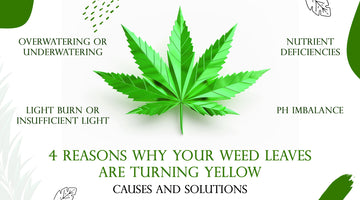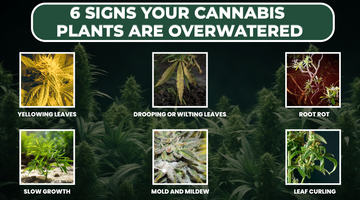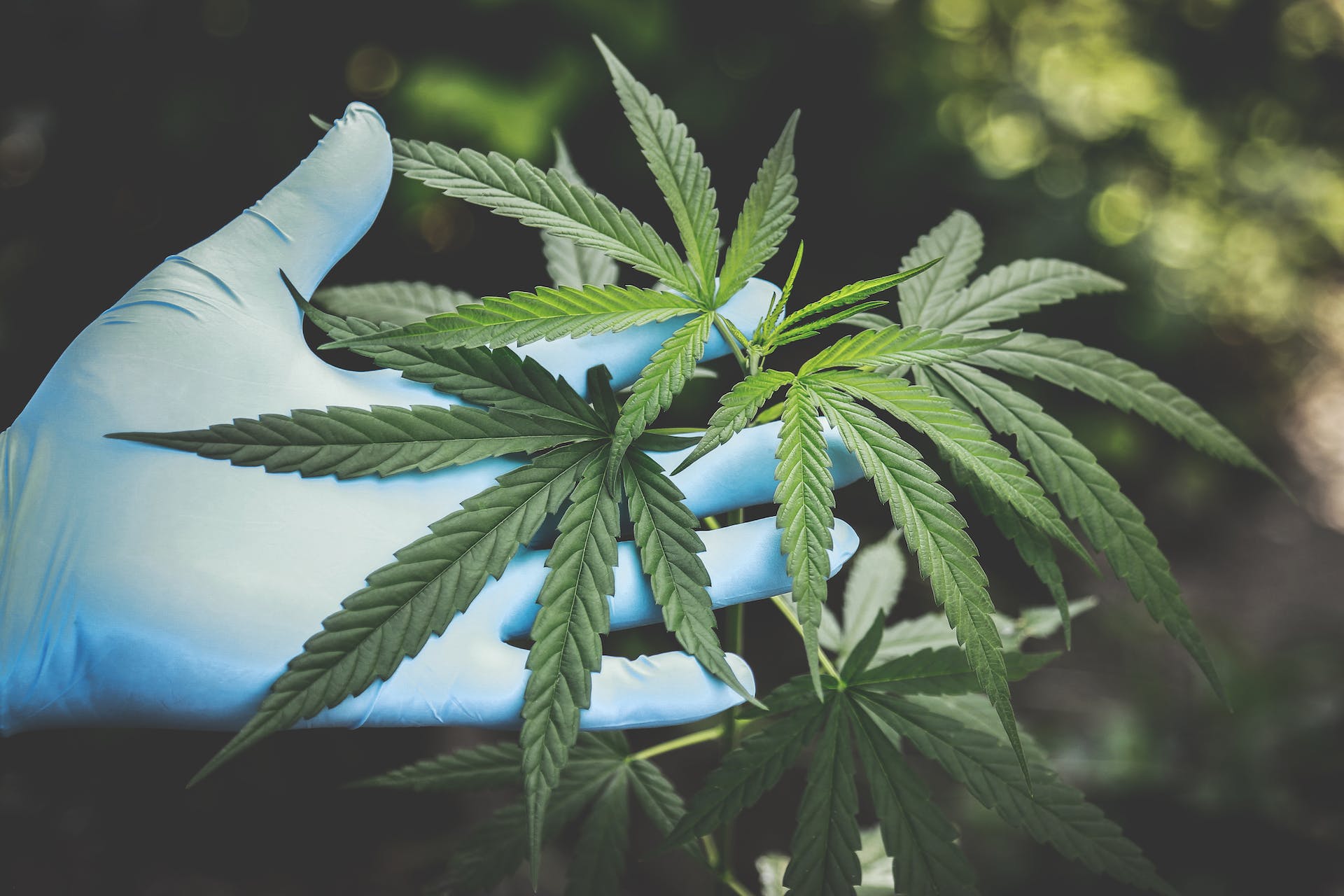Can You Overdose on Marijuana? Separating Myth from Reality and Understanding the Risks
by Kartik Digirocket on Jul 11, 2024

Marijuana is one of the most commonly used recreational drugs worldwide, yet it remains a topic of much debate and misinformation. One of the most persistent questions surrounding its use is whether it's possible to overdose on marijuana?
This article aims to separate myth from reality and provide a clear understanding of the risks associated with marijuana consumption.
What is Marijuana?
Marijuana, also known as cannabis, is a psychoactive drug derived from the Cannabis plant. Its main components include THC (tetrahydrocannabinol), which is responsible for the "high," and CBD (cannabidiol), which has therapeutic properties without the psychoactive effects. Marijuana is used for various purposes, including recreational enjoyment, medical treatment, and even in some spiritual practices.
Understanding Overdose
An overdose occurs when someone consumes a substance in quantities greater than their body can handle, leading to severe physical and psychological effects. Overdoses can be lethal or non-lethal, with symptoms ranging from mild discomfort to life-threatening conditions. While overdose often conjures images of extreme cases involving substances like heroin or alcohol, it's important to understand what an overdose means in the context of marijuana.
Can You Overdose on Marijuana?
The short answer is that while you can experience an "overdose" on marijuana, it is not fatal in the way overdoses of other substances can be. Scientifically, a marijuana overdose is more accurately described as consuming more THC than one's body can comfortably process, leading to intense and unpleasant symptoms. Unlike opioids or alcohol, marijuana does not depress the respiratory system, so a fatal overdose is extremely unlikely.
Symptoms of Marijuana Overdose
Marijuana overdose symptoms can be both physical and psychological:
- Physical Symptoms: Nausea, vomiting, rapid heart rate, dizziness, and extreme fatigue.
- Psychological Symptoms: Anxiety, panic attacks, paranoia, hallucinations, and confusion.
These symptoms, while distressing, are generally not life-threatening and tend to subside within a few hours to a day, depending on the amount consumed and the individual's tolerance.
Also read:- Detox Decoded: How Long Does It Take to Detox from Marijuana
Factors Influencing Marijuana Overdose
Several factors can influence the likelihood and severity of a marijuana overdose:
- The potency of the Product: Higher THC concentrations increase the risk of overdose symptoms.
- Method of Consumption: Edibles are more likely to cause overdose symptoms because THC is processed differently when ingested.
- Individual Tolerance: Regular users may have higher tolerance levels, whereas new users are more susceptible to overdose symptoms.
Case Studies and Statistics
While rare, there are documented cases of marijuana-related emergencies. Emergency room visits often involve individuals experiencing severe anxiety, paranoia, or other intense reactions to high doses of THC. Statistics show that while these incidents have increased with the legalization and wider availability of marijuana, they remain relatively uncommon compared to other substances.
Comparing Marijuana Overdose to Other Substances
When comparing marijuana to other substances, its safety profile becomes clearer:
- Alcohol: Alcohol poisoning can be fatal and occurs at a much lower consumption threshold than marijuana overdose.
- Prescription Drugs: Many prescription medications can cause lethal overdoses if misused.
- Illicit Drugs: Drugs like heroin and cocaine have a high potential for fatal overdose, unlike marijuana.
Long-Term Effects of Excessive Marijuana Use
Chronic overuse of marijuana can lead to long-term health issues:
- Cognitive Effects: Memory impairment, reduced attention span, and learning difficulties.
- Physical Health Impacts: Respiratory issues from smoking and potential cardiovascular strain.
Treatment for Marijuana Overdose
If someone is experiencing a marijuana overdose, immediate steps should be taken:
- Immediate Steps: Stay calm, hydrate, rest, and avoid any additional consumption.
- Long-Term Recovery: Seek medical advice if symptoms persist, and consider reducing consumption or seeking help for dependency issues.
Prevention Strategies
To prevent marijuana overdose:
- Responsible Use Guidelines: Start with low doses, especially with edibles, and be aware of the product's potency.
- Education and Awareness: Educate yourself and others about the effects and risks associated with marijuana use.
Legal and Medical Perspective
The legal status of marijuana varies widely:
- Legal Status: Many places have legalized marijuana for medical and recreational use, but laws differ.
- Medical Opinion: Medical professionals acknowledge the low risk of a fatal overdose but caution against excessive use.
Public Perception and Stigma
Public perception of marijuana is shifting:
- Society's View: As legalization spreads, societal views are becoming more accepting, though stigma remains.
- Media's Role: Media portrayal of marijuana use can influence public opinion, often sensationalizing negative aspects.
Myth vs. Reality
There are many misconceptions about marijuana overdose, one of the most popular being:
- Common Misconception: Marijuana is harmless or that it is as dangerous as heroin.
- Research-Supported Fact: Scientific research supports that while marijuana can cause intense, non-fatal overdose symptoms, it is far less dangerous than many other substances.
Understanding the realities of marijuana overdose helps demystify its risks. While it's not possible to die from a marijuana overdose in the way one might from opioids or alcohol, excessive consumption can still lead to severe and unpleasant symptoms. Responsible use, awareness, and education are key to minimizing these risks.
For those interested in cultivating their own marijuana plants, starting with high-quality seeds is crucial to ensure a healthy and productive crop. Check out Higher Quality Seed Corp for a wide selection of premium seeds. Whether you're a seasoned grower or a beginner, we have everything you need to get started.
FAQs
1- How is marijuana used?
Marijuana is used in various ways, including smoking (joints, blunts, pipes), vaping, consuming edibles (gummies, brownies), using tinctures, and applying topicals.
2- What are the health risks of using marijuana?
Health risks of using marijuana include impaired memory and cognitive function, respiratory issues (from smoking), anxiety, paranoia, and in some cases, addiction. Long-term use can lead to mental health issues and affect physical health.
3- What does an overdose on marijuana look like?An overdose on marijuana typically involves severe symptoms such as extreme anxiety, panic attacks, paranoia, hallucinations, nausea, vomiting, rapid heart rate, dizziness, and extreme fatigue. These symptoms, while intense, are generally not life-threatening.
4- What factors affect the reaction to marijuana, in terms of how severe and how long it lasts?
Factors affecting the reaction to marijuana include the potency of the product, the method of consumption (edibles tend to have a stronger, longer-lasting effect), individual tolerance, and the user's physical and mental health.





